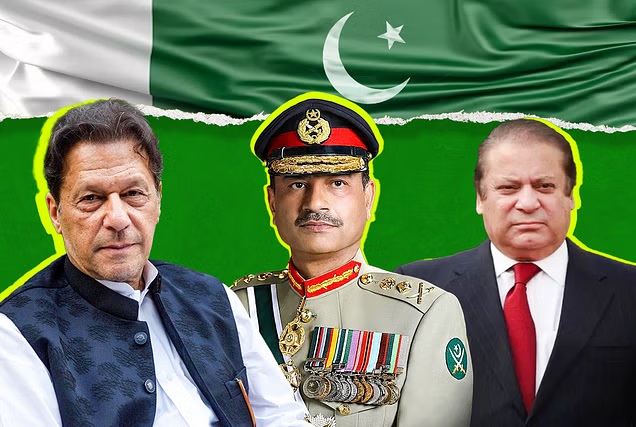The political landscape in Pakistan has been ablaze with controversy following the recent general elections. As the dust settles, questions arise about the legitimacy of the coalition government and the influence of the powerful Pakistan Army.
The Election Drama
In a surprising turn of events, the Pakistan Tehreek-e-Insaf (PTI) secured the most votes, but failed to clinch an outright majority. Imran Khan’s PTI, despite legal battles and allegations of rigging, emerged victorious. The charismatic leader’s promises of change resonated with voters, leading to a landslide win.
Military Machinations
Pakistan’s military, a formidable force, has historically shaped election outcomes. In this case, they quietly backed the Pakistan Muslim League-Nawaz (PML-N), led by three-time former prime minister Nawaz Sharif. The assumption was that Sharif would sail to victory with military support. However, PTI’s surge disrupted this script, leaving the military recalibrating its strategy.
Coalition Talks and Shehbaz Sharif’s Ascent
With no clear majority, coalition talks ensued. The PML-N and the Pakistan People’s Party (PPP) joined forces, determined to keep PTI out of power. Shehbaz Sharif, Nawaz Sharif’s younger brother and a former prime minister, emerged as the consensus candidate for the top post. Past rivalries were set aside for the sake of stability.
Imran Khan’s Outcry
Imran Khan cried foul, labeling the coalition as “mandate thieves.” PTI argued that they had won the most votes, and sidelining them was undemocratic. Khan, no stranger to legal battles himself, warned against legitimizing a government built on allegedly stolen votes. Rigging allegations echoed across the nation.
Shehbaz Sharif’s Dilemma
Shehbaz Sharif, poised to become prime minister, faces a delicate situation. While he may hold the title, the military’s influence looms large. Foreign policy, security matters, and economic decisions remain firmly in their hands. Shehbaz’s role may be more symbolic than substantive.
Economic Challenges and Military Control
Pakistan grapples with economic woes—soaring inflation, mounting debt, and IMF bailouts. Observers remain skeptical about the coalition’s ability to tackle these issues. The military, respected yet untested in economic matters, casts a long shadow.
Democracy’s Crossroads
As Pakistan stands at this critical juncture, citizens and international observers watch closely. Is this a genuine democratic transition or a calculated move orchestrated by powerful forces? The military’s goodwill remains crucial. Whether it’s #SelectionNotElection or a true democratic shift, only time will reveal the truth.


